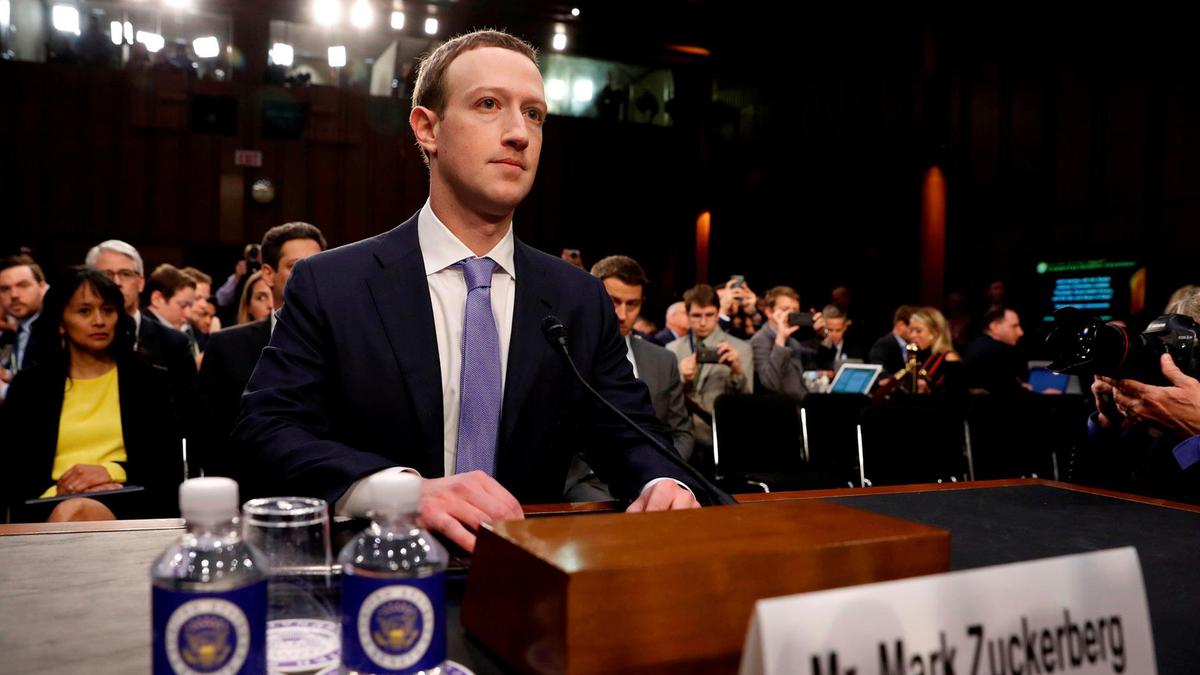When Facebook and Twitter face US congressmen’s questions today (September 5) about policing online content, the tech giants won’t be able to prove they work to the Goldilocks principle. Is what they serve up like our heroine’s porridge — not too hot, not too cold, but just right?
Are the tech titans doing too little to police content? Do they do too much, as Donald Trump alleges, with his complaints that conservative views are censored? Or, do they do just the right amount?
And what is the right amount anyway? Other than outright incitement to violence or child abuse, no one can seem to agree on the faultlines. Should objective information and far-right disinformation be given equal weight? Should anarchist left-wing opinion be given a hearing?
Are basic principles which are enshrined in philosophy as far back as Plato — those of justice, virtue and equality — to be a matter of opinion now?
Are these universal values and aspirations to be considered subjective, all to do with perspective and additionally contingent upon geography?
Recent developments illustrate the scale of the problem. On Monday Fionnuala Ni Aolain, an Irish-American law professor and UN special rapporteur for counter-terrorism and human rights, complained to Facebook founder Mark Zuckerberg that the social media network uses too “sweeping” a definition of non-state dissent.
It doesn’t discriminate between “diverse forms of dissent and opposition (peaceful or violent)”, she said, thereby helping a number of governments that seek to “stigmatise” all opposition as terrorism.
There is no agreed international definition of terrorism but the principle of state sovereignty is better accepted.
This has come into play with China’s recent decision to block access to the website of Australia’s national broadcaster for breaching the country’s laws. It didn’t specify the violations but it wouldn’t have mattered even if Beijing had done so.
As Australia’s prime minister Scott Morrison has said: “China’s a sovereign country. They make decisions about what happens there.”
Suspension of access to websites, restriction of the internet or a selective ban on social media is hardly new.
There was outrage but little surprise when India announced a month’s social media ban in Kashmir in April last year, citing misuse by “anti-government elements”. It was one of many such moves over the years.
A report by the US-based Software Freedom Law Centre, which provides pro bono services, said the internet has been blocked in Kashmir at least 31 times between 2012 to 2016.
Internet control — complete, partial or threatened — is a reality across the globe. Different governments identify different targets at different times and for different reasons.
They use varying techniques and differing levels of harshness. But the reality is the world wide web is not really worldwide in the sense it’s not the same everywhere, for everyone, in the world.
Some countries have done more on this front than others and more defiantly too.
In Turkey, the roster of blacklisted websites ballooned with every month that followed the failed July 2016 coup.
Soon enough, Ankara was declaring it would build a domestic search engine compatible with “national values and culture”. In October last year, Yaani was launched.
But the most remarkable example of a vibrant, if nationalised — which is to say controlled — internet might be that of China. It started building a “great firewall” around its version of the internet 20 years ago.
The giant and flourishing alternative system has a bespoke Google-like search engine, an Amazon-like e-commerce operation, a Twitter-like microblogging site and a Facebook-resembling social network. Everything you might find outside China is available but in quarantined form and with Chinese characteristics.
It’s pointless then to ask if the global internet is likely to become an etherised version of a physical map of the world. It already is. That etherised map changes at will and according to need.
What’s new is the calls coming from the US, from the US president no less, for greater regulation of internet search engines to force them to offer equal time to opposing views.
It’s worth noting that some of those views are exclusivist and distasteful. These views are not shared by many who believe equality and justice is a human aspiration.
Despite Mr Trump’s bully pulpit, his prescriptions for internet regulation may not come to pass. After all, the US has strong free speech protections.
Even so, the suggestion itself takes us into different territory, a virtual landscape served by an internet carved up into enclaves of ethno-nationalist opinion.
How long then should one cling to the belief the world wide web really circles the globe, all of it, all the time? That the internet — a network of networks — is a rightfully enjoyed and freely accessible tool for everyone?
It isn’t. The world wide web is a local utility with global features.


